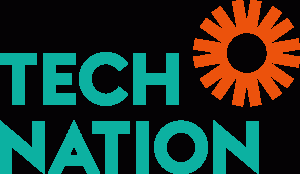Bristol has been named as the UK’s most competitive and productive tech cluster in yet another recognition of the city’s preeminent role in the high-growth sector.
According to the latest research from Tech Nation, the organisation that helps accelerate the growth of the digital tech sector across the UK, Bristol has the highest digital tech turnover per person in the UK at £320,000. 
The report also found:
- New digital tech businesses in Bristol grew by 283% between 2006 and 2016
- 226 businesses founded in 2016
- Turnover of digital sector in Bristol has increased by 1.6% between 2014 and 2017 to reach £7.9bn
- Digital tech jobs in Bristol reach 24,754 in 2017.
Tech Nation found a ‘productivity power path’ from London to the mouth of the River Severn, running along the M4 corridor, which it said helped Bristol and Bath, in particular, by connecting them to the established tech firms of Reading and the Thames Valley.
Last week Bristol Business News revealed that, in the latest of a string of reports, Bristol had been placed sixth among Europe’s top 10 tech ‘super clusters’ in a table by global real estate adviser CBRE – putting it above Cambridge, Cologne and Vienna.
Tech Nation chief operating officer MB Christie said: “Bristol is one of the most exciting tech clusters in the country right now and has the most productive sector when measured by digital turnover by employee.
“There is a fantastic talent pool here, fed by the universities of Bristol and Bath as well as the engineering heritage in the area. It’s exciting to see Bristol’s start-ups pushing ahead in semiconductor technology and in quantum computing.”
Tech Nation Insights Lead Dr George Windsor added: “There are likely to be a number of reasons for Bristol’s high productivity. We found that higher productivity correlates to higher digital density, suggesting that there are worker level effects resulting from companies clustering.
“It may be that advanced manufacturing and hard-tech firms associated with sub-sectors like aerospace and telecommunications – which are more densely clustered in and around Bristol – are able to capitalise on these clustering effects to a greater extent than other tech companies, resulting in Bristol’s very high digital tech turnover per employee.”
Tom Carter, pictured, co-founder and CTO of Ultrahaptics – the University of Bristol spin-out firm creating cutting-edge technology that allows people to ‘feel’ virtual objects and which raised $23m last year – said: “Ultrahaptics was founded in 2013 based on technology developed at Bristol University so it was natural for us to base the company here. We love being surrounded by a long heritage of innovation and technology and the quality of life here in the South West has also helped us to recruit talented individuals.”
And Nigel Toon, co-founder and CEO of Graphcore, another University of Bristol spin-out which is changing the way machines operate by altering the way they learn – and which raised $89m last year – added: “We have attracted some of the world’s biggest investors while being based in Bristol. Our connections with London and with Silicon Valley are strong and we are proud of being at the centre of one of the most exciting and dynamic innovation hubs in the UK right now.
Serrie Chapman co-founder of Women’s Tech Hub, said: “Like the digital tech industry across the UK, the South West industry is male dominated. Women’s Tech Hub is an organisation that works to support and encourage women and gender non-conforming people to think afresh about tech and how they get into that industry.
“We are building a trusted support network for women in the South West either running a tech company or thinking of creating a tech start-up, as well as helping women and girls to develop the skills to get into the industry.”

Andrew Perkins, pictured, Bristol managing partner at accountancy group EY, which sponsored the report, said: “Tech Nation’s latest report acknowledges Bristol as the most competitive and productive tech cluster in the UK – a fantastic accolade for the city which has proved itself as a fertile ground for innovative, forward-thinking companies who are growing their business through harnessing technology.
“Bristol is already well established in the tech space, with a greater number of tech companies based in this region who have moved beyond start-up and are now fully fledging businesses generating revenue and growth.”
The research was unveiled at a Tech Nation on Tour event at Bristol innovation hub Engine Shed on Wednesday when entrepreneurs, founders and tech ecosystem experts gathered to debate the opportunities for developing start-ups in the city.
A survey conducted by Tech Nation among Bristol’s tech community listed the top three key strengths as:
- A helpful tech community
- An appealing area
- Access to talent.
The key challenges are:
- Access to funding
- Access to Talent
- Cost of Living





























